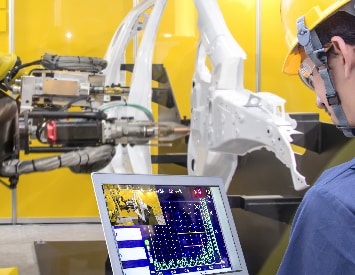Transferable or commonly referred to as soft skills, play a vital role in an engineer’s success. These skills are necessary to excel in the profession and make a significant impact. Join us as we explore their power and propel your career forward.
Engineering is a multidimensional field that requires a combination of technical expertise and diverse skills to thrive. In addition to the core technical knowledge, engineers must possess transferrable soft skills contributing to their professional success. Let’s explore the transferrable soft skills that are invaluable for engineers in today’s dynamic work environment.
What are Transferable Skills?
These general skills often apply to various jobs and are not unique to a specific job or vocation. These skills are more interchangeable and flexible in that you can demonstrate how such skills can be relevant for multiple roles or within different job functional departments.
Transferable soft skills also include personality traits and habits that are more innate and unique to us. This is where the word “soft” comes from. Soft skills are less measurable than hard skills and often relate to how we interact with other people.
Thus, soft skills are often transferable to other jobs and positions. These skills do not require “job experience,” nor does it have to be studied.
Below is a list of transferable soft skills:
| Problem-solving | Delegating |
| Analytical reasoning | Organisation |
| Critical thinking | Time management |
| Leadership | Research and analytical skills |
| Adaptability | Managing conflict |
| Teamwork | Work ethic |
| Communication | Flexibility |
| Writing | Integrity |
| Listening | Follow-through |
| Attention to detail | Creativity |
| Project management | Fast learner |
| Relationship building | Computer skills |
| Management |
Why are These Skills Important?
Transferable soft skills seem to become more and more important as the years go on. With technological improvements changing every industry at a rapid pace, having a handful of transferable soft skills that can guide you through a career change is needed now more than ever.
These skills are incredibly important to cultivate. These are the skills you can bring into every facet of your life that can help you stand out in an oversaturated job market.
Having strong leadership skills or amazing communication skills will always be beneficial, no matter what job, career, or industry you might land in.
Sure, it’s important to have hard skills as well. But if you don’t focus any attention on your soft skills, it’s likely that the hard skills won’t matter as much.
For example, if one candidate is an engineer but has zero interpersonal skills while another candidate has more to learn about engineering but is extremely organized with an undeniable work ethic, guess who’s going to get the job?
The tricky part is that, in some cases, soft skills are more difficult to gain as many of them are natural abilities or personality traits. So, the idea here is to embrace your unique strengths and highlight the soft skills that you do possess.
Why you Need to Enhance your Transferable Skills
As an engineer, it is essential to focus on improving your soft and transferable skills for several reasons. These skills complement your technical knowledge and contribute to your overall professional growth and success.
In addition, employers also place significant value on an applicant’s soft skills. This is due to their impact on the overall work environment and the ability to work well with others. These skills demonstrate a candidate’s ability to collaborate, adapt, and contribute effectively to the organization.

How to Enhance your Transferable Skills
Enhancing transferable and soft skills as an engineer requires proactive efforts and a commitment to continuous learning. It begins with self-reflection and assessing your current skill set. Take time to identify areas that need improvement, focusing on communication, teamwork, adaptability, and problem-solving.
To improve these skills, actively seek learning opportunities. Attend workshops, webinars, and seminars that cater to the development of transferable skills. Online courses, tutorials, and books can also provide valuable guidance. Additionally, practice effective communication by participating in group discussions, and presentations, and seeking feedback.
If you’re interested in exploring these learning opportunities further, we invite you to visit our website. We offer a range of engineering webinars, events, and seminar details that can assist you in your professional development journey. Find more information here: https://www.eit.edu.au/news-events/events/?tribe_events_cat=idc-technologies-conference/
Collaboration and networking are essential for enhancing soft skills. Engage in team projects or join professional communities to foster collaboration and build relationships. Embrace group activities, work on projects that require diverse perspectives, and develop your interpersonal skills. Seeking feedback from colleagues, mentors, or supervisors allows you to gain insights and identify areas for improvement.
Stepping out of your comfort zone is crucial for growth. Embrace new challenges and experiences that require adaptability and problem-solving. This helps build resilience and allows you to develop new skills. Continuously reassess and set goals for self-improvement. Regularly reflect on your progress and adjust your efforts to focus on the skills that are most relevant to your career aspirations.
Transferable soft skills empower engineers to adapt to the rapidly evolving technological landscape and industry demands. By continuously improving their problem-solving abilities, adaptability, and critical thinking skills, engineers are better equipped to stay ahead in their field and embrace emerging technologies.
REFERENCES
Soft Skills and Transferable Skills: Why Are They Important?
Hard, soft, and transferable skills – do you know the difference?


